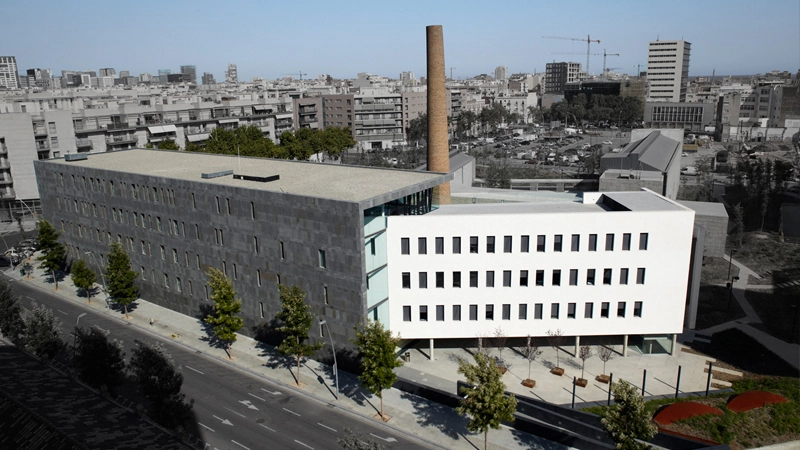The Department of Information and Communication Technologies, recognized as a María de Maeztu unit of excellence for the second time
The Department of Information and Communication Technologies, recognized as a María de Maeztu unit of excellence for the second time
On Friday 4 November, the State Research Agency published the provisional resolution granting new accreditations and public funding 2022 of ‘Severo Ochoa’ centres of excellence and ‘María de Maeztu’ units of excellence.

The Department of Information and Communication Technologies (DTIC) at Pompeu Fabra University has obtained accreditation as a ’María de Maeztu’ unit of excellence for the second time, after obtaining it in the 2016 call.
On Friday 4 November, the State Research Agency, attached to the Spanish Ministry of Science and Innovation, published the provisional resolution granting new accreditations and public funding 2022 of ‘Severo Ochoa’ centres of excellence and ‘María de Maeztu’ units of excellence, awarding 54 million euros to 18 institutions, 9 with Severo Ochoa and another 9 with María de Maeztu accreditation.
The ‘Severo Ochoa’ Centre of Excellence and the ‘María de Maeztu’ Unit of Excellence accreditations are the highest institutional recognitions for scientific research in Spain. Both aim to finance and accredit public research centres and units, in any scientific area, that demonstrate scientific impact and leadership at the international level and that actively collaborate with their social and business environment.
Vladimir Estivill: "The ‘Severo Ochoa’ Centre of Excellence and the ‘María de Maeztu’ Unit of Excellence accreditations are the highest institutional recognitions for scientific research in Spain."
Vladimir Estivill, director of the DTIC, expressed his gratitude for the recognition and said that “striving for excellence under strict regulations and the context of a public institution is particularly difficult; therefore, being recognized once again as a María de Maeztu Unit is a remarkable achievement for the collective effort and commitment of our scientists and researchers. Our department allows great flexibility so that we do not disturb our top academics with certain parameters. We highlight results and constantly encourage internationalization and high quality research”.
Thanks to this recognition, the DTIC will have funding of 2 million euros, spread over four years. “This huge achievement undoubtedly recognizes the DTIC as the first Spanish research department in our transversal disciplines in engineering, computing, biomedicine, neuroscience, interactive systems, music, computer vision and artificial intelligence. It shows that our diversity of research efforts comes together in an integrative goal. We cover engineering, technology, intelligence and cognition, which are incredibly relevant to all scientific efforts, but also to our entire society”, Estivill notes. Finally, he adds that “our researchers, for example, touch on aspects of algorithmic equity, the ethics of artificial intelligence; and therefore, they are firmly committed to the responsible impacts of technology”
Ángel Lozano: "we are seeking to put our expertise into issues such as artificial intelligence and neuroscience at the service of interdisciplinary projects with the social sciences, the humanities, biomedicine, and also the new initiative for planetary wellbeing"
For his part, Àngel Lozano, scientific director of the project stresses that “In 2015, the UPF Department of Information and Communication Technologies was the first engineering unit to receive this recognition, and it is now the first engineering unit to renew it, consolidating its position within the state map of excellence”. And he adds that “while in 2015, the objective was to promote internal cohesion, on this occasion we are seeking external projection and to transcend the boundaries of the department. Taking advantage of the fact that this is an engineering department within a generalist university, we are seeking to put our expertise into issues such as artificial intelligence and neuroscience at the service of interdisciplinary projects with the social sciences, the humanities, biomedicine, and also the new initiative for planetary wellbeing that apprehends the entire UPF transversally”.
The centres and units have been selected for their scientific results and strategic programmes following rigorous assessment.
The requirements, standards of exigency, criteria and procedures for evaluation and selection related to scientific excellence do not establish any differences between centres and units, which have been selected for their scientific results and their strategic programmes following rigorous assessment involving some one hundred renowned international scientists.
Through this action, the Spanish Ministry of Science and Innovation promotes the high-impact research that is carried out in our country’s R&D centres. The accredited centres stand out both for the international reputation of their scientific contributions as well as for their innovative capacity and their intense relationship with the business sector. They are, moreover, reference centres worldwide, capable of attracting international talent.
With the recognition achieved by the DTIC, four UPF research centres and units have now obtained one of the two awards granted by the Spanish State. The Department of Medicine and Life Sciences (MELIS) obtained a “María de Maeztu” in a previous call. In addition, the Barcelona Graduate School of Economics (Barcelona GSE), an interuniversity research institute in economics affiliated to UPF and the UAB, founded in 2006, has been awarded a “Severo Ochoa” accreditation. Lastly, the Center for Genomic Regulation (CRG), a centre involving and affiliated to the UPF, obtained a “Severo Ochoa” accreditation in 2012.
In addition to the DTIC, María de Maeztu accreditation has also been granted to the Barcelona Institute of Analytic Philosophy (BIAP), an interuniversity centre coordinated by the UB with the participation of the UPF and the UdG, with the presence of four researchers from the University’s Department of Law.
